Anglican Christianity
-
Childlike faith in God in Christ, interrupted by:
-
Fear-based “conversion”, leading to:
-
Semi-fundamentalism, which (due to the faithful way my parents discipled me in the grace and love of Christ as the fulfillment of the law) didn’t last too long because of an instilled resistance to letter-of-the-law thinking which opened the door to:
-
A desperately relieved re-discovery of the grace of God in Christ, which I found articulated most clearly by Reformation Christianity, which in turn formed me in:
-
A sacramental understanding of how God ordinarily communicates himself, a profound mystery that I found pervades all of life, and I understood to be articulated by the Church Fathers, who are presently convincing me of:
-
The truly cosmic implications of a God that is not simply a being but Being itself, that loves humans by becoming a human–Jesus of Nazareth, son of Mary–, that defeats death by dying on a cross, that lives to give life via union with him, in his Spirit.
-
sometimes through intentional practices
-
sometimes in unexpected breakthroughs
-
sometimes through the right word from the just right person at the just right time
-
always somehow intertwined with his Church…
- The degree to which those statements are binding have to do with how in-concert they are with higher levels of authority (the Fathers and Scriptures). I refuse any doctrinal or ethical proposition that is in outright contradiction of the catholic consensus if that consensus can be reasonably argued from the Scriptures—as would the authors of the Articles themselves.
- It is probable that the original authors did in fact mean to prohibit certain practices and doctrines that are arguably consistent with the Bible and witness of the Early Church, and thus catholic. Example: reservation of the Sacrament. However we are not bound so much by exactly how the orginal authors intended to apply the true catholic doctrines in the daily discipline of the church (although it’s important to keep in the conversation regarding interpretation and use of the Articles).
- Our Communion’s collective witness is that they are still useful, because they put in no uncertain terms the Bible in its rightful place of primacy and address issues that still plague the church today (for instance, Pelagianism and anti-Trinitarian heresy). Even interpreting them in the widest possible sense, the essential, catholic doctrines (including justification by faith) are preserved. Furthermore, keeping them as a standard helps us to remember our origins and the precious doctrinal, liturgical, and cultural heritiage we receive as heirs of the English Reformation.
Ordained a priest 7 years ago today. So grateful to God and to those that he has called me to serve. I’m especially thankful for my wife, Amber, who is a constant support, source of wisdom, and inspiration to me as she serves faithfully in her own ministries.
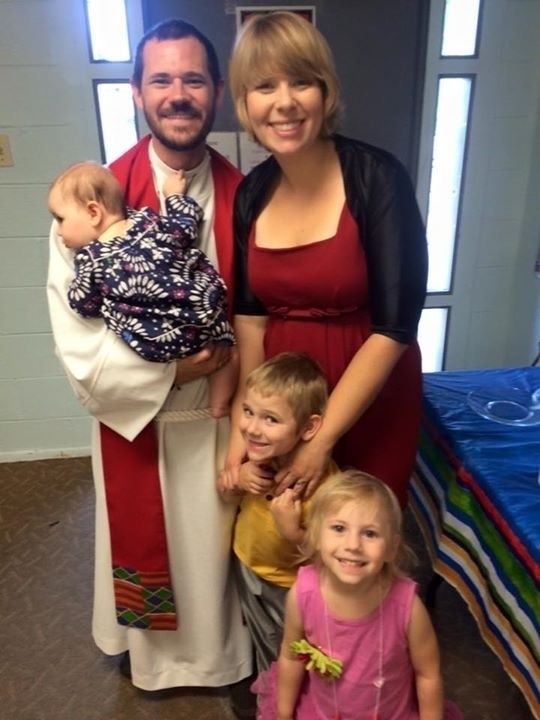
Today the Church celebrates James the Elder, Apostle.
O gracious God, your servant and apostle James was first among the Twelve to suffer martyrdom for the Name of Jesus Christ: Pour out upon the leaders of your Church that spirit of self-denying service, by which they may have true authority among your people; through Jesus Christ our Lord, who lives and reigns with you and the Holy Spirit, one God, now and for ever. Amen.
Art: Calling of Saint James and Saint John, James Tissot 1886-1894
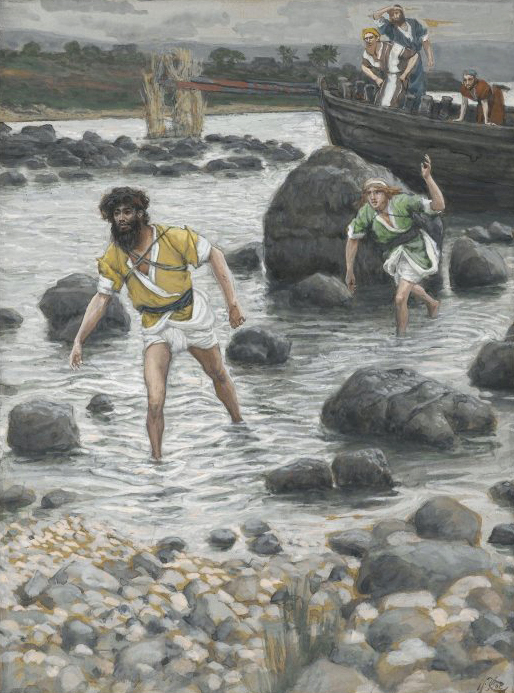
Lashed to the mast of Word and Sacrament
This how I try to understand and live out my pastoral and priestly vocation: “lashed to the mast of Word and Sacrament.”
“One more thing: We are going to ordain you to this ministry, and we want your vow that you will stick to it. This is not a temporary job assignment, but a way of life that we need lived out in our community. We know that you are launched on the same difficult belief venture in the same dangerous world as we are. We know that your emotions are as fickle as ours. That is why we are going to ordain you and why we are going to exact a vow from you.
We know that there are going to be days and months, maybe even years, when we won’t feel like we are believing anything and won’t want to hear it from you. And we know that there will be days and weeks and maybe even years when you won’t feel like saying it. It doesn’t matter. Do it. You are ordained to this ministry, vowed to it. There may be times when we come to you as a committee or delegation and demand that you tell us something else than what we are telling you now. Promise right now that you won’t give in to what we demand of you. You are not the minister of our changing desires, or our time-conditioned understanding of our needs, or our secularized hopes for something better. With these vows of ordination we are lashing you fast to the mast of Word and Sacrament so that you will be unable to respond to the siren voices.
There are a lot of other things to be done in this wrecked world, and we are going to be doing at least some of them, but if we don’t know the basic terms with which we are working, the foundational realities with which we are dealing – God, kingdom, gospel – we are going to end up living futile, fantasy lives. Your task is to keep telling the basic story, representing the presence of the Spirit, insisting on the priority of God, speaking the biblical words of command and promise and invitation.”
Eugene Peterson, Working the Angles
A brief outline of my spiritual journey
A brief outline of my spiritual journey though theological “phases”:
Through it all there has always been an undeniable charismatic/mystical experience of God walking with me in a million ways:
…guiding me always and only to Jesus.
It is not as if I am developing a greater/ deeper understanding of Jesus' “part” in God’s plan. I am only ever more convinced Jesus is God’s plan. Jesus' way is God’s way. Union with Christ isn’t an aspect of life, it is life itself.
And what a journey it is…here’s the thing…I find the news to be better and better the more I believe the simple teachings of Jesus:
“The kingdom of heaven is at hand”
“Blessed are meek”
“Turn the other cheek”
“I have come to give life and life abundant”
“I will draw all men to myself”
(obviously I could go on)
I mean it’s almost too good to be true but somehow I believe it so deeply
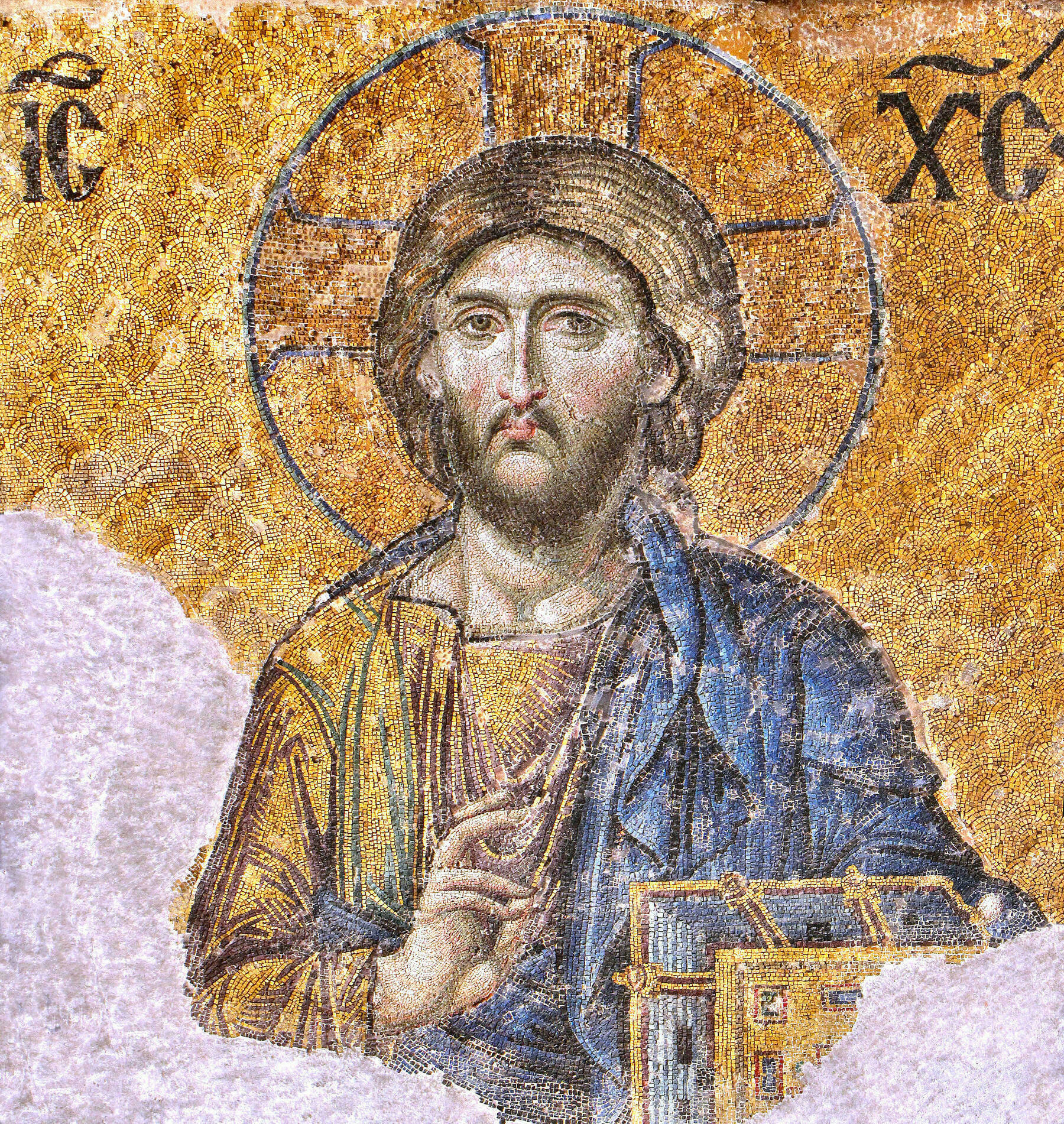
Interpreting the Thirty- Nine Articles
Religion with Room to Grow
Owen Chadwick in his essay “The Mind of the Oxford Movement” notes that church historian Thomas Fuller (17th century, mind you, not far removed from the Articles) said “that the Thirty-Nine Articles were like children’s clothes, made of a larger size so that the children might grow up into them. Whether the original authors of the Articles were looking for that breadth and liberty…is doubtful. [Yet] the statement [by Fuller] effectively represents the way in which Anglican moderation was seen to have room for persons attached, in mind or affection or devotion, to tradition.”
The historical fact seems to be that the Articles were interpreted in different ways from the very beginning! There was the immediate sense of the author’s intent, then there were others who wished a more lenient interpretation (which was certainly a legitimate possibility from the text itself). The Latitudinarians basically said, “if there’s no clear Scriptural prohibition, everything is on the table as long as it doesn’t get into that realm.” This would eventually develop into the broad church tradition, and in its more extreme form became the way of the Evangelical movement: The Scriptures, along with Reason and the Holy Spirit, were enough in themselves to arrive at the fullness of truth, without necessarily consulting the Fathers, etc.
Chadwick says, “The Latitudinarian dominance in English thought….so reinterpreted the Thirty-Nine Articles as to make them no longer the doctrinal hedge or guide which once, perhaps (but only perhaps), they successfully formed.”
The Oxford movement actually didn’t like this at first, because in their mind it chipped away at the teaching authority of the Church. Nevertheless when Newman threw out his interpretation, he is handling the Articles in ways they were already being handled. Another quote from Chadwick: “Whether or not Newman’s method was sound is a question. But the novelty was not in his handling the Articles to extract the maximum breadth from their language. The novelty lay in his handling the Articles in a Catholic direction.”
The Articles of Religion in their Proper Place
To lay a bit of groundwork: First, within the historical development of Anglicanism, we see a hierarchy of teaching authority:
First, The Biblical text itself.
Second, the teachings of the conciliar, undivided church as expressed in the dogmatic proclamations of the great councils.
Then, the teachings of the Fathers (where they speak with one voice).
Then, (four levels up!) the Thirty-Nine Articles and the teachings of the English Reformers themselves (which are meant to reform back to the Bible and Fathers).
Finally, reputable and godly contemporary scholars and theologians.
This hierarchy is key to a faithful way of interpreting the Articles that maintains historical and intellectual integrity.
Hermeneutical principles for the Articles
Now, a few principles on the Articles themselves, once we get there:
The Articles are not meant to expound new doctrines (a brief overview of the writings of the English Reformers will show this) but rather to express in language contemporary to the time the Catholic doctrines in opposition to the abuses and superstitions of the Roman church. They were meant to rein in some stuff that gone way too far. If we take them to be statements that are not highly influenced by their historical context, and fail to take that into account in our application of them to our own, different historical context, I think we are missing something. As we interpret them, we must do so in a way consistent with higher levels of authority.
We agree the authors were fallible, but their desire to reform the church to consistency with the Bible and Fathers was sound. So, we are justified in being primarily concerned with the usefulness of the statements in the Articles in themselves as expressing pre-existing catholic doctrine reasonably argued from Scripture and Tradition, today. So the question is, are they still useful?
Conclusion
Given the actual broadness of the wording, the uneven, yet enduring historical reception of the Articles in the Communion, and the principles of a hierarchy of authority, I think it is possible and even permissible (I’ll go further: even desirable!) to interpret the Articles in a way that permits certain practices and doctrines that the authors would have rejected at the time.
We do this to be as faithful as we can to higher levels of authority, while avoiding the messy and unneeded process of revising the Articles.
For example, we can (and to be intellectually honest, we must) acknoweldge that the Articles do probably intend to prohibit the reservation of the Sacrament as it was being practiced at the time. At the same time, we can reasonably argue that the current practice in Anglican churches of reservation for the sick does not violate the catholic doctrine set forth in the articles, (may in fact exemplify their spirit) and thus is in fact consonant with their deeper principles. Moreover, the text itself does not outright prohibit the practice, so we can accept the relevant text as-is, without revision. This is simply following the spirit of the “law” in the Articles with wisdom, rather than the letter.
Not only can we intepret the Articles this way, we should interpret them this way! We should do it openly, too, and show our work. This is because regardless of precise authorial intent, we want to interpret in harmony with the guiding principle of the Reformers: faithfulness to the higher levels of authority for the purposes of illuminating true, catholic (universal) doctrine and practice, while refuting superstition and abuse.
This is gives us some of the “room” of the Latitudinarians and, say, Newman-style interpretation without giving ourselves over to historical revisionism. We are able then to maintain faithfulness to catholic doctrine/practice and intellectual honesty.
A Must-Read for Every Aspiring Pastor
Note: this was originally published for The Anglican Mission in America blog.
Shortly after I began speaking with my pastor about the possibility of pursuing ordination with The Anglican Mission, he passed a copy of Michael Ramsey’s classic The Christian Priest Today my way.
Of course, I had no idea that this little book was by a former Archbishop of Canterbury, or that it was originally a set of addresses to candidates for ordination in the ’70s. As I’ve continued to digest the simple, yet profound wisdom in Michael Ramsey’s The Christian Priest Today, it’s become apparent to me why it’s remained pertinent for over four decades. I suspect it will endure many more.
In today’s world of marketing-speak and leadership-culture-infused ministry books, The Christian Priest Today is a breath of fresh air. Ramsey delves deep into what it means to be a pastor, a shepherd of souls. Discussions about developing your “personal brand,” and “leadership strategy” are blessedly absent. Not that there’s anything inherently or necessarily wrong with understanding how to apply those ideas to ministry, but something feels right about the simple way Ramsey speaks of preaching Jesus, living a life of prayer and cultivating a humble heart.
Although The Christian Priest Today is approaching the half-century mark from its first publication, Ramsey’s simple and direct style reinforce the underlying timelessness of his observations regarding the pastoral roles of deacon and priest and bishop. It remains fresh because Ramsey wasn’t seeking to be “cutting edge” (though he didn’t avoid contemporary issues) about a practice and vocation that itself is fundamentally timeless.
I was reminded that shepherding souls will always transcend leadership trends, business strategies, and academic accomplishments. Ramsey’s book gently re-taught me that pastoring has always been and will always be about bringing people to Jesus, pointing people to Jesus, telling people about Jesus.
A few nuggets of wisdom that were impressed on my heart and mind as I read:
“We are called, near to Jesus and with Jesus and in Jesus, to be with God with the people on our heart. That is what you will be promising [in your ordination vows]” (p. 14).
“Let those who are glad to be Catholics or Evangelicals or Liberals set themselves to learn all they can from one another, for the partisan can soon become a person who loves his own apprehension of the truth more than Christ who is the truth, and himself more than either” (p. 72).
“Be ready to accept humiliations. They can hurt terribly, but they help you to be humble…these can be so many changes to be a little nearer to our humble and crucified Lord. There is nothing to fear if you are in his hands.” (p. 80)
“Jesus Christ is himself the gospel we preach…He is himself the essence of the good news” (p. 27)
The Christian Priest Today is the sort of book I can imagine re-reading every year or two, just to help re-center on why I do what I do. It is the sort of book I can imagine giving other young pastors (because if you could only give one book on the pastoral ministry, this would be a strong candidate). It is the sort of book that remains in your thoughts and on your heart long after you’ve finished.
The Christian Priest Today by Michael Ramsey invites you to be refreshed by what God is doing in and through the ordained ministry, by calling you to re-focus on the heart of the Christian faith: the person of Jesus.
What is Anglicanism? by Charles Erlandson.
Probably one of the better definitions of Anglicanism I have read, and certainly one of only a few that has seriously attempted to describe our movement and spirituality without undue emphasis on one facet only.
Anglican Pastor graciously published my write up about the website I created for praying the Daily Office online.
This is such a great conversation with Anglican priest and author Tish Warren.
I totally get what she means about not having a “camp.” As a pacifist, catholic, evangelical, and charismatic Christian with lots of questions and a preference for highly nuanced answers…I also sometimes often feel like the odd person out.
“I want the whole Christ for my Savior, the whole Bible for my book, the whole Church for my fellowship, and the whole world for my mission field.” - The Revd John Wesley, Anglican priest
This is what a Gospel-saturated heart desires.
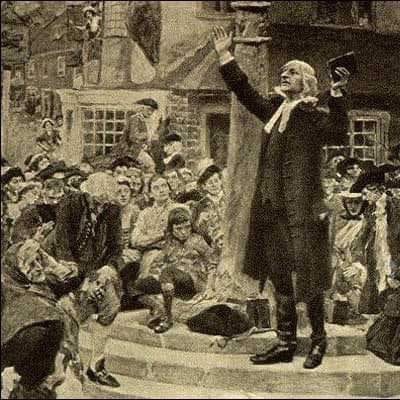
Today I got the August lectionary up at Anglican Daily Office. Took a little more work than I anticpated as I had test a few different formats/layouts to see what would work best on different size screens without complicating things. In the end I think I found something that works.
I made something today! Check it out: anglicandailyoffice.online You’ll find the texts for Morning and Evening Prayer from the 2019 Book of Common Prayer in an easy-to-scroll format for phones and tablets. I plan to add supplemental material, the lectionary, and additional offices as time allows.
A comprehensive and clear introduction.
The ACNA’s 2019 Book of Common Prayer (BCP): A Rookie Anglican Guide - Anglican Pastor
Opening Eucharist for the 10 year anniversary provincial assembly of the Anglican Church in North America at the beautiful Christ Church Cathedral!.
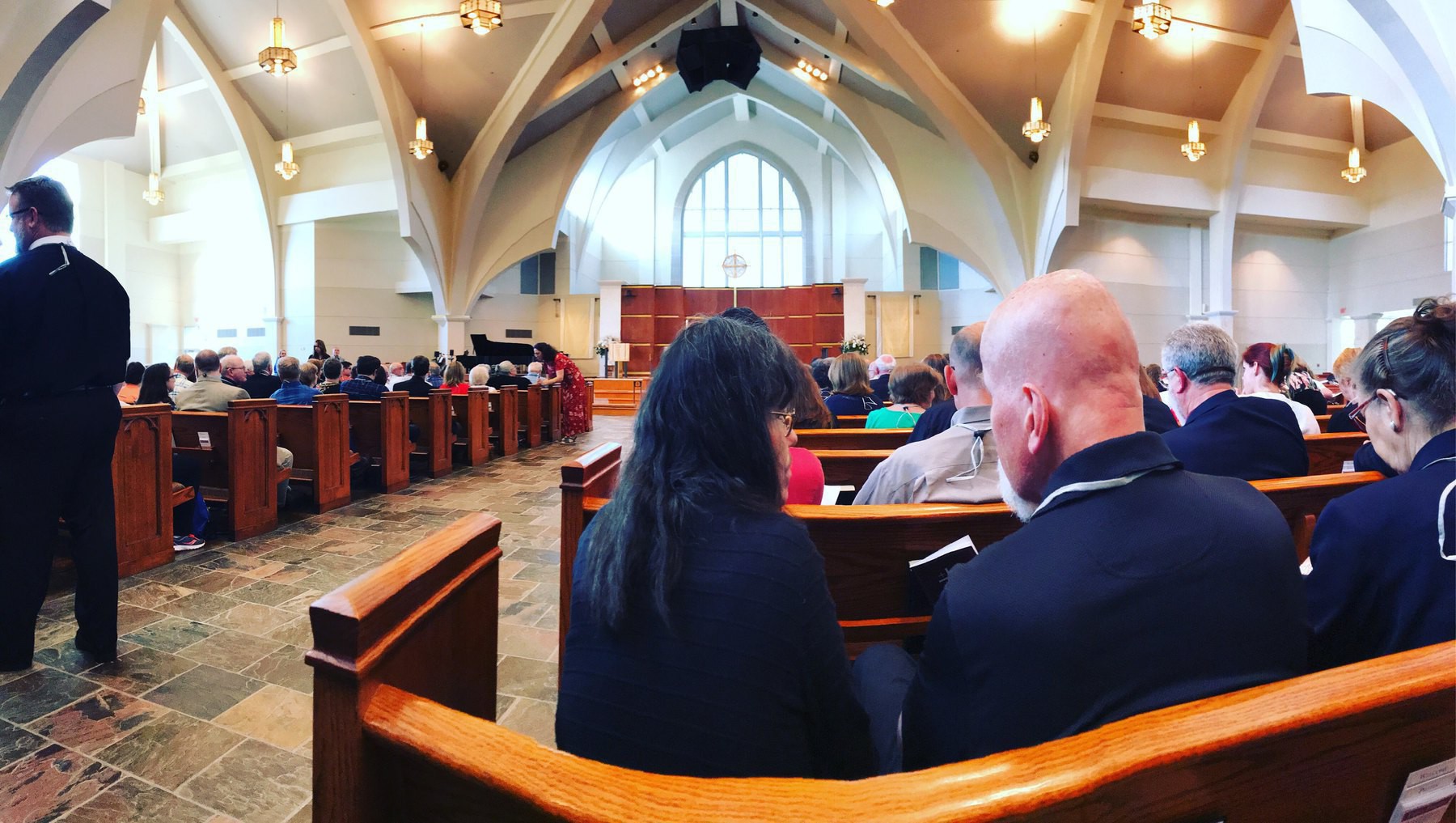
Hey friends, I was recently on the Daniel Generation podcast with my friend Drew, and it was a blast! Loved talking liturgy, Anglicanism, ecumenism, and discipleship! Give it a listen
How do I know that I’m saved? This is a question that plagues many faithful Christians, particularly those in Evangelical circles. With such a strong emphasis on a personal relationship with Jesus Christ, Evangelicalism has contributed to a false mindset in which salvation depends upon a person’s sense of being saved. If I don’t feel Jesus today—if I don’t feel all that saved— then how do I know that I really am saved? If only there were something outside of my personal feelings that revealed God’s love to me! Thanks be to God, there is.
Myles Hixon, “Maundy Thursday: A Collect Reflection” via Anglican Pastor
John Bacon, writing for Anglican Pastor:
In our current climate, it would be very Anglican to return to the feet of the early, divided Church, and ask how we could more fully participate in the life of the Triune God in Holy Communion and in sanctified community.
It would also do us well to remember that Christendom and the Church are related, but not the same thing. The death of Christendom does not spell the death of the Church. Pentecost took place in a pagan empire, around three hundred years prior to the conversion of Constantine.
I learned about the calendar, the Eucharist, the morning and evening office, the saints, the fasts, and the feasts. I was introduced to a Christian life that seemed whole and full.
I’ve had glimpses of this.
The new Book of Common Prayer from the Anglican Church in North America will be here before we know it, and I’m excited. Looks like they were really thoughtful not only with the liturgical/theological content, but the print design as well.
This is not only encouraging, but needed.
Excellent time at the 2019 Diocese of the Rocky Mountains Gathering connecting with fellow Anglicans on mission! Glad to be on the plane headed home to my wife and kids though.
 NRH
NRH